
Decarbonisation, Net-Zero Emissions and Biomass = Business as Usual?
In the 3rd of our series from the Bonn pre COP21 Paris Climate Change negotiations, Pavlos Georgiadis reports on decarbonisation, zero emissions & biomass. […]

In the 3rd of our series from the Bonn pre COP21 Paris Climate Change negotiations, Pavlos Georgiadis reports on decarbonisation, zero emissions & biomass. […]

We need a new deal – a new citizen focused CAP. Guest post by Pete Richie of Nourish Scotland. […]
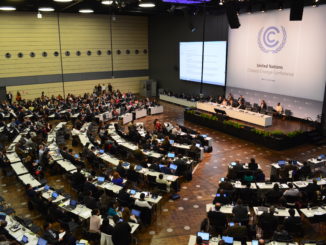
In Bonn, real people and important ideas are locked out. And so-called Climate Smart Agriculture – brainchild of the fertilizer industry – and broad generalities define the terrain. Pavlos Georgiadis is in Bonn, and he gives us this report. […]

NewsFlash August-September 2015 […]

NewsFlash July 2015 […]

NewsFlash June 2015 […]

Newsflash April-May 2015 […]

Most EU countries and regions have now declared their intention to not grow GM crops. In the UK, this means everywhere – except England, as Peter Crosskey reports. […]
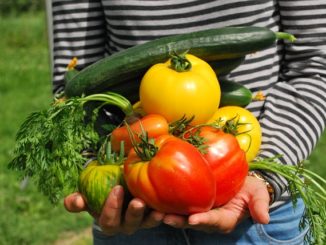
The UK’s Growing Livelihoods scheme to foster smaller-scale food growing has added a further five projects to the pilot phase it launched last year. The new arrivals in the Growing Livelihoods family are Bristol’s Beacon Farms, the Cwm Harry Cultivate group in south Wales, Cloughmills Community Action Team in Northern Ireland, the Cornish Tamar Grow Local group and Falkland Small Growers in Fife. The Tamar Grow Local group will convert an agricultural building into a shared packhouse, meeting space and office. This will extend the existing support for new market gardeners, who will be able to work together and establish new routes to market. With the Falkland Estate earning organic certification in May this year, two new businesses have been set up to establish a network of local growers. Falkland Kitchen Farm and Meadowsweet Organics are part of a plan to share equipment and services such as marketing organic crops. Cloughmills Community Action Team is building a geodesic dome, like the Eden Project, in which hydroponic salad crops will be grown, alongside mushrooms raised on […]
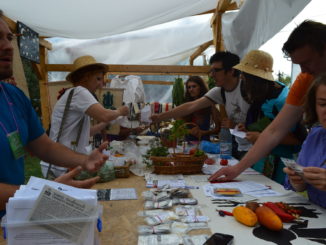
Despite restrictions, civil society is helping people use traditional seeds. Eco Ruralis report from Romania. […]
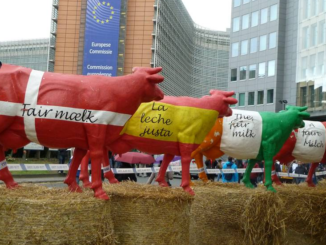
Commission announces contentious €500m aid package for dairy, pork ARC2020 […]

The Eastern European entrance of Lidl and Kaufland, supermarket retail chains owned by a German corporate group, were financed with loans from public money. According to an investigation by The Guardian, almost 900 million Euro of public funds coming from the World Bank and European Bank for Reconstruction and Development (EBRD) were injected to develop hundreds of supermarkets packed with cheap, imported food. This leaves peasants and other local food producers, largely ignored by these retailers, unable to compete. These public institutions, funded by taxpayers and owned by governments, have explicit mandates to increase local development in the countries where they spend their money. The World Bank also has an additional, specific mandate to reduce global poverty. An International Consortium of Investigative Journalists found that 1,000 World Bank projects approved between 2004 and 2013 forced 3.4 million people from their homes, grabbed their land, or damaged their livelihood. The banks claim that their funding for Lidl and Kaufland would create jobs, opening new markets for local producers and bringing “good quality, affordable food” to poor […]

Written by: Claire Bernardin, Land Rights intern at Eco Ruralis; additional content via Corporate Europe Observatory. “Soon, journalists and their sources could be sued by companies if they reveal what these companies want to keep secret. Unless we react to defend the investigative work of journalists and, by extension, the right for citizen to be informed. Under the alibi of the fight against industrial espionage, the European Parliament is preparing a new massive weapon against journalism,”trade secrets”, whose definition allows not less then an unprecedented censorship in Europe.” That’s according to the petition launched by Elise Lucet, a French investigative journalist, which is approaching half a million signatures. It all started on November 28th 2013 when the Commission submitted a draft proposal aiming to homogenise the definition of a trade secret throughout the EU. This would fight economic and industrial espionage by protecting companies against the unlawful acquisition, use and disclosure of the aforementioned trade secrets, thus enhancing competitiveness in the Union. However, voices arose among civil society to denounce the dangerous vagueness of the bill. […]
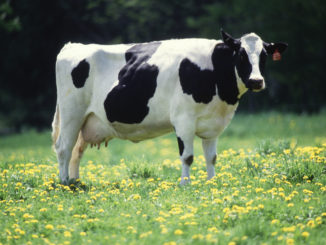
The end of milk quota was greeted with glee in Ireland: that’s changing as prices slump. […]
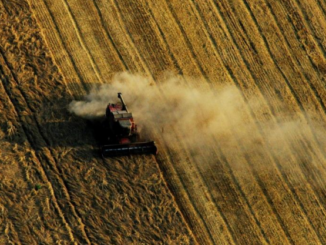
New interactive map reveals extent of land grabbing in Romania. […]
Agricultural and Rural Convention